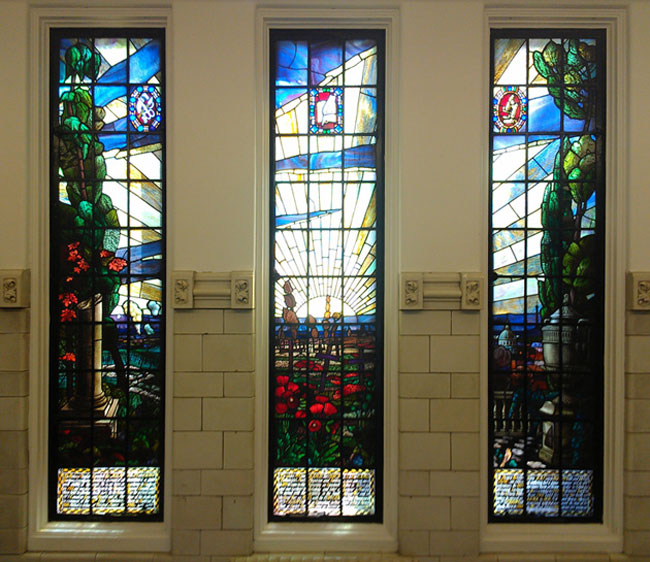
Many female McGillians served on the front lines as ambulance drivers and nurses, and volunteered in Montreal; the warden of McGill’s Royal Victoria College, Ethel Hurlbatt served as chairwoman of the Women’s War Registry Committee, which supported the war effort and ensured the continued stability of the Montreal workforce.
In Dannes-Camiers and Boulogne, France, Dr. Herbert Stanley Birkett, McGill’s Dean of Medicine, headed the McGill No.3 Hospital, which was the war’s first hospital unit created by a university. The 1040-bed unit provided frontline medical and surgical care to military personnel. It was staffed by McGill faculty members, medical students and nurses from the Royal Victoria and Montreal General hospitals’ schools of nursing.
An illuminated book, which is displayed in the walkway connecting the McLennan and Redpath Library Buildings, lists the names of the 363 McGillians who fell during the war. The War Memorial Archway in the Raymond Building on the Macdonald campus and the WHAT are permanent reminders of the war’s toll, while three particular McGillians who were killed in the line of duty – student Lieutenant George Irvine Baillie, and graduates Lieutenant Gordon Home Blackader and Captain Percival Molson – are remembered by the chemistry library, the art and architecture library, and the football stadium.
